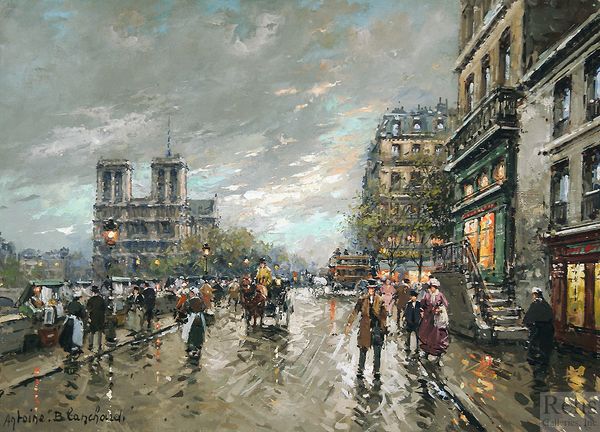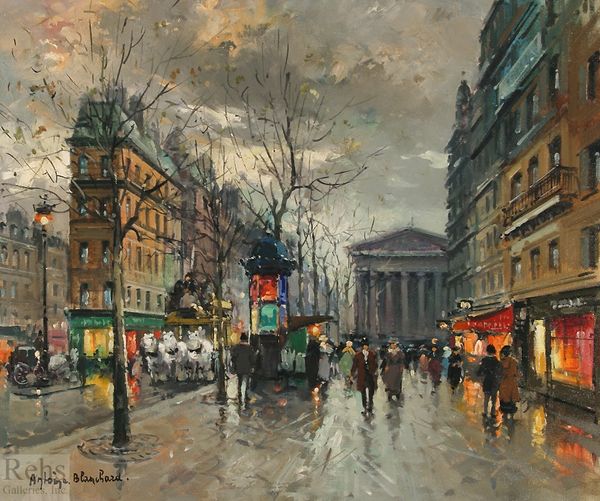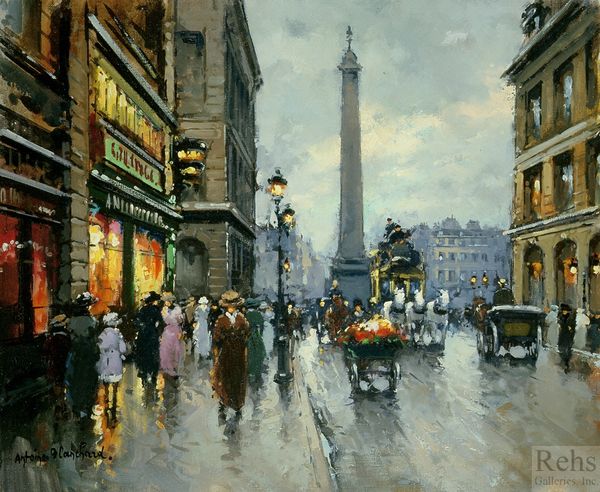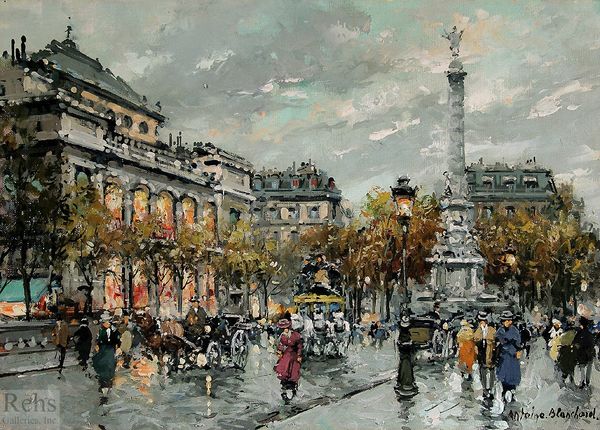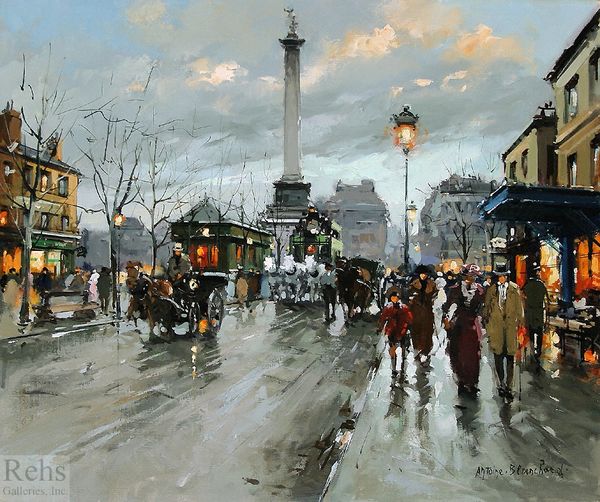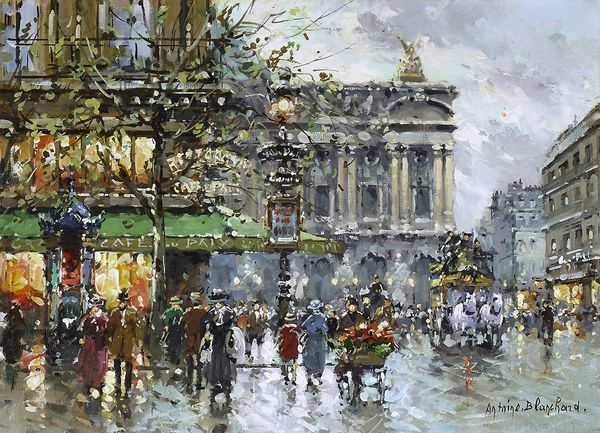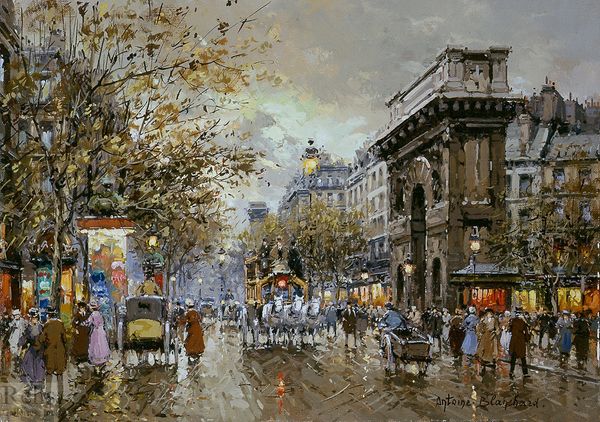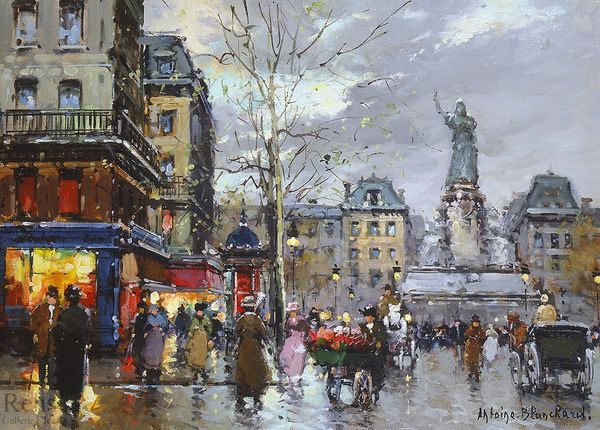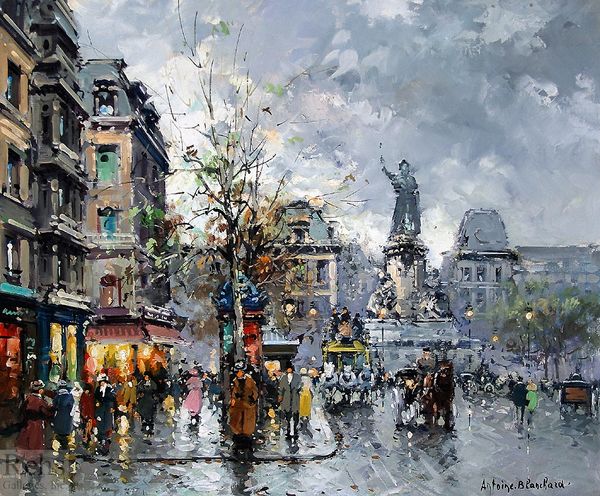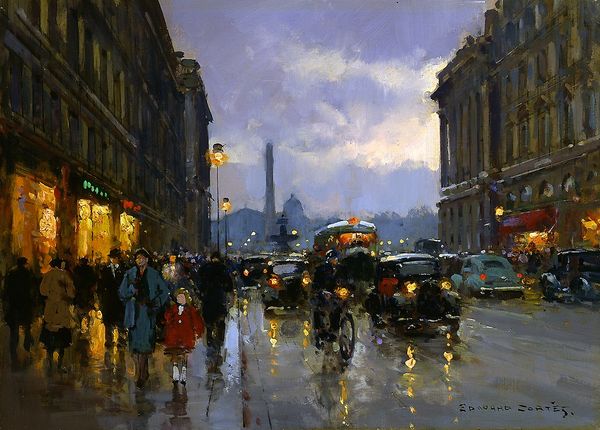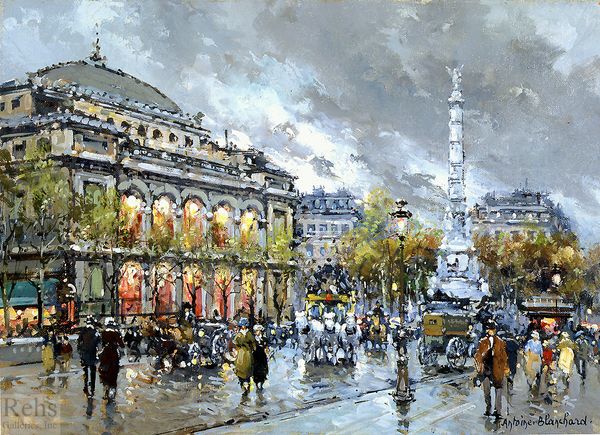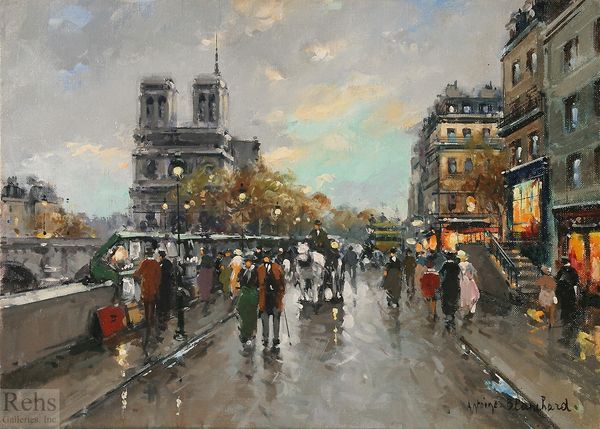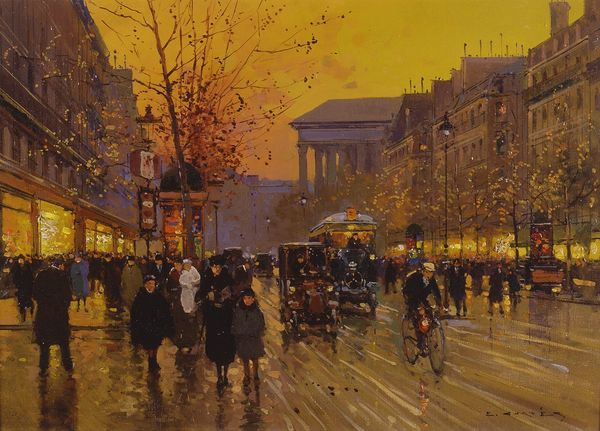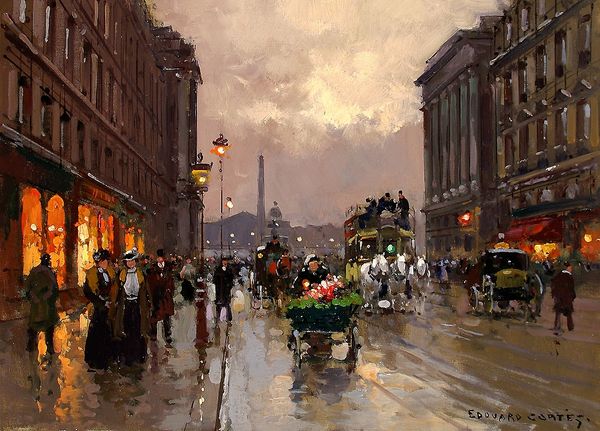
painting, plein-air, oil-paint, impasto
#
portrait
#
narrative-art
#
baroque
#
painting
#
impressionism
#
plein-air
#
oil-paint
#
perspective
#
figuration
#
oil painting
#
impasto
#
orientalism
#
cityscape
#
street
#
building
Copyright: Antoine Blanchard,Fair Use
Curator: Blanchard's "Hotel de Ville and La Place de Greve" plunges us into a bustling Parisian street scene. There’s a captivating contrast between the imposing architecture and the lively energy of the figures. What is your initial response to the painting? Editor: Immediately, the reflection on the wet pavement captures my eye. You can almost feel the damp chill of the air. He’s not just rendering buildings and people but creating atmosphere through the material effects of oil paint. Curator: Absolutely. And thinking about that atmosphere, it is impossible to separate that specific view of Paris from the era’s profound social changes. This isn't just a depiction; it reflects the social and economic dynamics shaping Parisian life, particularly regarding the labor that allowed that kind of leisure in the city to take place. Editor: Precisely! Look at the materiality of the carriages, the street lamps, the fashions on display, all made through distinct methods of production and consumption. Who is manufacturing these goods, under what conditions, and to whom are they sold? Curator: It is really important to analyze beyond that superficial gaze and question who is visibly represented and, crucially, who is notably absent. The city presented here wasn’t equitable. Editor: That is true. It is a sanitized depiction that certainly does not reflect the lived realities of every Parisian. But it’s Blanchard’s masterful impasto work, that texture—it is not just representation. Curator: Indeed, these cityscapes offer us a glimpse into a specific historical context but must always be interrogated in regard to how gender, class, and social standing play into that visual experience. What stories aren't we seeing? Editor: In examining the painting as an object in itself—its brushstrokes, pigment, and scale—we also reveal information. What decisions were made in the artist’s studio to produce this view? The relationship between the labor involved in producing this image, and the leisure represented. Curator: Considering Blanchard's "Hotel de Ville and La Place de Greve" allows us to question the romantic vision of Paris and dive into the social issues behind the subject portrayed. Editor: Yes, looking at the image through materials allows us to analyze the class distinctions that underpinned this vision of modernity, prompting reflections on Parisian identity.
Comments
No comments
Be the first to comment and join the conversation on the ultimate creative platform.
